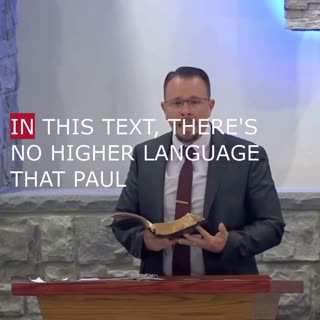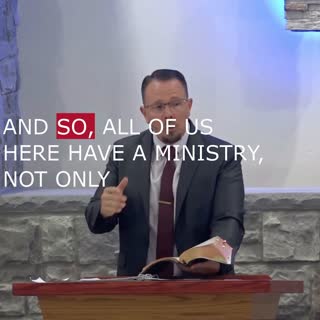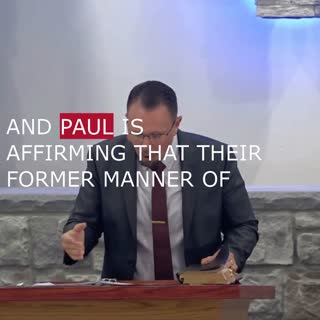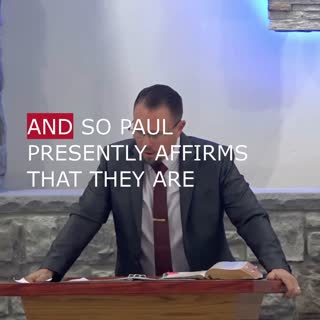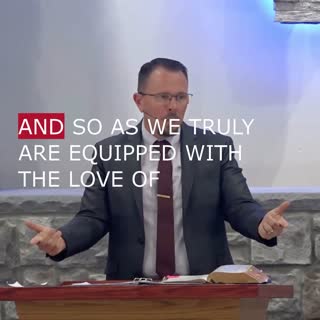Encouraging Spiritual Growth Through Affirmation and Community
Devotional
Sermon Summary
Bible Study Guide
Sermon Clips
In this text, there's no higher language that Paul could use to esteem the ministry of maturing the church. And so, if you have an idea in the back of your mind, it's what Paul is doing right here. He is maturing the church, and he's using the highest level of language possible. John Calvin said of this most important ministry of equipping the saints that, and I quote, God might Himself have performed this work if He had chosen, but He has committed it to the ministry of men. [00:03:27] (32 seconds)
And so, all of us here have a ministry, not only of reconciliation, according to Paul's ministry to the Corinthians. He said that every Christian has a ministry of reconciliation. We're evangelists. We're to evangelize. We're to share the gospel. But also, we have a ministry as well to mature the saints, to be a part of utilizing our gift within the local church so that, as a result, if you look in the text above in verse 14, as a result, we're no longer children in the faith. [00:03:59] (29 seconds)
If you love Christ, then you love His Word. And if you love His Word, then you know and apply His Word. And His Word does these things in people's lives. It's not only your life, okay? You are not one who exists just to study the Word of God for yourself, but what you learn, what you know of Christ is expected by God to be shared with others so others can mutually grow in that as well. [00:07:06] (26 seconds)
And Paul is affirming that their former manner of life used to be such. In verse 22, it says that in reference to your former manner of life. They used to live like Gentiles. But they've had a conversion. They've been converted. They've been saved. And now as true Christians, Paul is affirming the life change in their life. And he's building them up. And he's encouraging them. [00:14:25] (27 seconds)
And so Paul presently affirms that they are walking in this way and they are laying aside the old sins and they are putting on the newness of Christ. And Paul knows this and he is affirming this. It's really beautiful. And so here in verse 17, so this I say and affirm together with the Lord that you walk no longer just as the Gentiles walk. He's affirming them. [00:35:43] (27 seconds)
And so the main idea of this passage, I would dare say, is that the Ephesian antidote to fighting off the old simple self is putting on the new self. Putting off the old and putting on the new. And so applicationally, we also submissively, decide bad character one thing at a time. And you will grow in your faith little by little by little and over a short period of time, you'll grow a long ways. [00:37:12] (31 seconds)
And so as we truly are equipped with the love of God, we do not hold ought against one another. Forgive right away. Forgive right away. It's good marriage advice, by the way. Forgive right away. It's good parenting advice, by the way. Forgive right away. It's good fellowship advice, by the way. Forgive, forgive, forgive. Be one who just forgives right away. You can't offend me. [00:43:28] (20 seconds)

